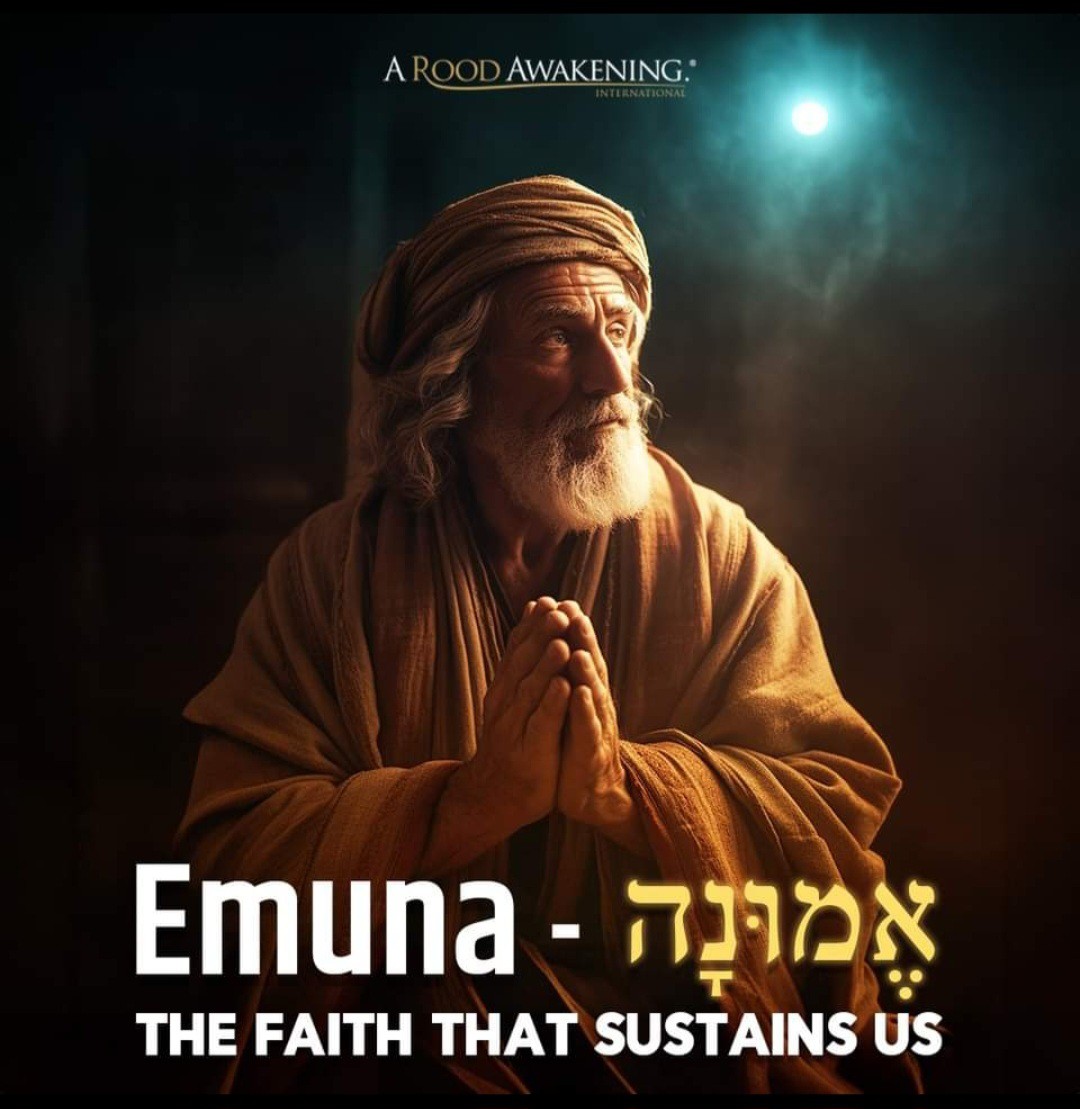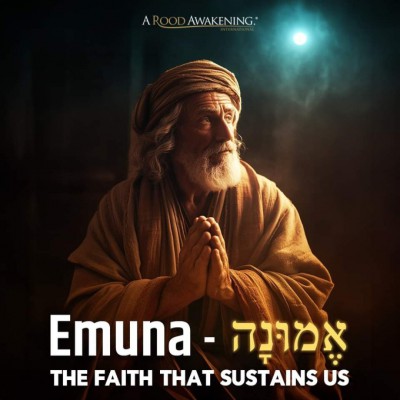Watch
Events
Articles
Market
More
The message, "Yom Teruah," was delivered on location at 60 Bailey Ave., Manchester, NH for First Fruits Ministries Sabbath and Yom Teruah celebration on Sept. 16, 2023.
For the Odysee video recording, visit the replay here: https://tinyurl.com/578x2cs3
For the presentation transcript, download the PDF here: https://tinyurl.com/bwkna7m9



Therefore John was saying to the crowds that came out to be immersed by him, "You brood of vipers! Who warned you to flee from the coming wrath?"
Luke 3:7
Who warned the Jews of John's day to flee the coming wrath? Moses, Isaiah, and a half-dozen others did. They read and taught Moses, but they lived their own traditions without believing Moses, or they would have believed John and Yeshua.
Isaiah 40:2 says that before Messiah finally restores Israel, that they would be repaid double for their sins. For all they have suffered, there must be more to come because that restoration has not yet been delivered.



?What is faith? Have you ever tried to define it?
If we cannot explain what it is, can we claim to possess it?
In the dictionary, this word is associated with belief and hope, and while this is true in Hebrew as well, the meaning of the word emuna (אֶמוּנָה) is much more comprehensive.
The first thing we must understand is that the noun emuna comes from a verb. This verb is aman (אָמַן). Amán means to believe, but it also has several physical or practical implications, as we will see below.
“And he believed in Yehovah, and He accounted it to him for righteousness.”
- Genesis 15:6
The verb “believed” (הֶאֱמִן) here comes from the verb amán (אָמַן). And in the context of the story of Abraham, we see how he was a man of action and received this visitation from Yehovah after he had already left his homeland. His emuna led him to take action.
Emuna is related to truth:
“A faithful witness does not lie, but a false witness will utter lies.”
- Proverbs 14:5
“Open the gates, that the righteous nation which ?keeps the truth may enter in.”
- Isaiah 26:2
?We guard the commands. ?
Read the full blog post by clicking here: https://aroodawakening.tv/emuna/




?What is faith? Have you ever tried to define it?
If we cannot explain what it is, can we claim to possess it?
In the dictionary, this word is associated with belief and hope, and while this is true in Hebrew as well, the meaning of the word emuna (אֶמוּנָה) is much more comprehensive.
The first thing we must understand is that the noun emuna comes from a verb. This verb is aman (אָמַן). Amán means to believe, but it also has several physical or practical implications, as we will see below.
“And he believed in Yehovah, and He accounted it to him for righteousness.”
- Genesis 15:6
The verb “believed” (הֶאֱמִן) here comes from the verb amán (אָמַן). And in the context of the story of Abraham, we see how he was a man of action and received this visitation from Yehovah after he had already left his homeland. His emuna led him to take action.
Emuna is related to truth:
“A faithful witness does not lie, but a false witness will utter lies.”
- Proverbs 14:5
“Open the gates, that the righteous nation which ?keeps the truth may enter in.”
- Isaiah 26:2
?We guard the commands. ?
Read the full blog post by clicking here: https://aroodawakening.tv/emuna/




?What is faith? Have you ever tried to define it?
If we cannot explain what it is, can we claim to possess it?
In the dictionary, this word is associated with belief and hope, and while this is true in Hebrew as well, the meaning of the word emuna (אֶמוּנָה) is much more comprehensive.
The first thing we must understand is that the noun emuna comes from a verb. This verb is aman (אָמַן). Amán means to believe, but it also has several physical or practical implications, as we will see below.
“And he believed in Yehovah, and He accounted it to him for righteousness.”
- Genesis 15:6
The verb “believed” (הֶאֱמִן) here comes from the verb amán (אָמַן). And in the context of the story of Abraham, we see how he was a man of action and received this visitation from Yehovah after he had already left his homeland. His emuna led him to take action.
Emuna is related to truth:
“A faithful witness does not lie, but a false witness will utter lies.”
- Proverbs 14:5
“Open the gates, that the righteous nation which ?keeps the truth may enter in.”
- Isaiah 26:2
??We guard the commands.?
Na'ase Venishma, we shall hear, and obey to do.
Torah on the mind and right hand is action. ???The Hebrew word, תּוֹרָה Torah, is derived from the primitive 3-letter Verb Root, יָרָה Yarah, an archery term meaning to Point, Throw, Cast, Shoot, Flow as Water, to Direct, Teach, or
?Instruct/instruction.??
It also contains the Sub-root אוֹר Ohr, meaning Light.??
The תּוֹרָה Torah Points like a Light in the Way of Truth and Life.?
The Word is Torah.
For the command (mitzvah) is a lamp (נֵר ner), And the Torah (תּוֹרָה) a light (אוֹר), And reproofs (rebukes) of discipline a way of life (chayyim חַיִּים),
Mishlĕ (Proverbs) 6:23 TS2009
Read the full blog post by clicking here: https://aroodawakening.tv/emuna/





And he began to speak to them in parables. "A man planted a vineyard and put a fence around it and dug a pit for the winepress and built a tower, and leased it to tenants and went into another country...."
Mark 12:1
And now, O inhabitants of Jerusalem and men of Judah, judge between me and my vineyard.
Isaiah 5:3
I think the parable of the vineyard in Mark 12 was an intentional allusion to the parable of the vineyard in Isaiah 5. Anyone listening to #yeshua who knew Isaiah well would probably have made that connection.



Nahir G
Delete Comment
Are you sure that you want to delete this comment ?